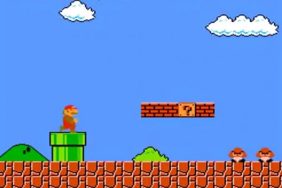The NES Classic Edition is officially dead, after Nintendo announced that they are officially discontinuing the console.
The NES Classic Edition experienced many supply issues throughout its short life span, with the company failing to meet its high demand at launch and then struggling to send out units to retailers throughout the duration of its short lifespan. In a statement released to IGN, a Nintendo of America representative said:
“Throughout April, NOA territories will receive the last shipments of Nintendo Entertainment System: NES Classic Edition systems for this year. We encourage anyone interested in obtaining this system to check with retail outlets regarding availability. We understand that it has been difficult for many consumers to find a system, and for that we apologize. We have paid close attention to consumer feedback, and we greatly appreciate the incredible level of consumer interest and support for this product.”
Though Nintendo insisted that the NES Classic Edition wasn’t intended to have a long shelf life, considering that it was launched on November 10, 2016, this discontinuation is still incredibly premature. Nintendo previously stated that they had sold healthy 1.5 million units of the console during the company’s quarterly fiscal results meeting back in January, and many were holding out hope that they would begin increasing their supply to retailers in the new year.
Also: Sony Urged to Offer PS4 Game Refunds in Wake of Microsoft’s New Xbox One Refund Policy
The day after its launch, the $60 console was being sold for as much as $500 on eBay, with scalpers profiting immensely off its limited availability. This number will now sky rocket as Nintendo begins the process of discontinuing the console, with them sending out one final batch to retailers before pulling the plug on it.
The NES Classic Edition was a plug and play system that boasted 30 retro games from Nintendo’s library, including Metroid, The Legend of Zelda and Super Mario Bros. The final shipment is expected to make its way to brick and mortar stores, along with online retailers such as Amazon.









